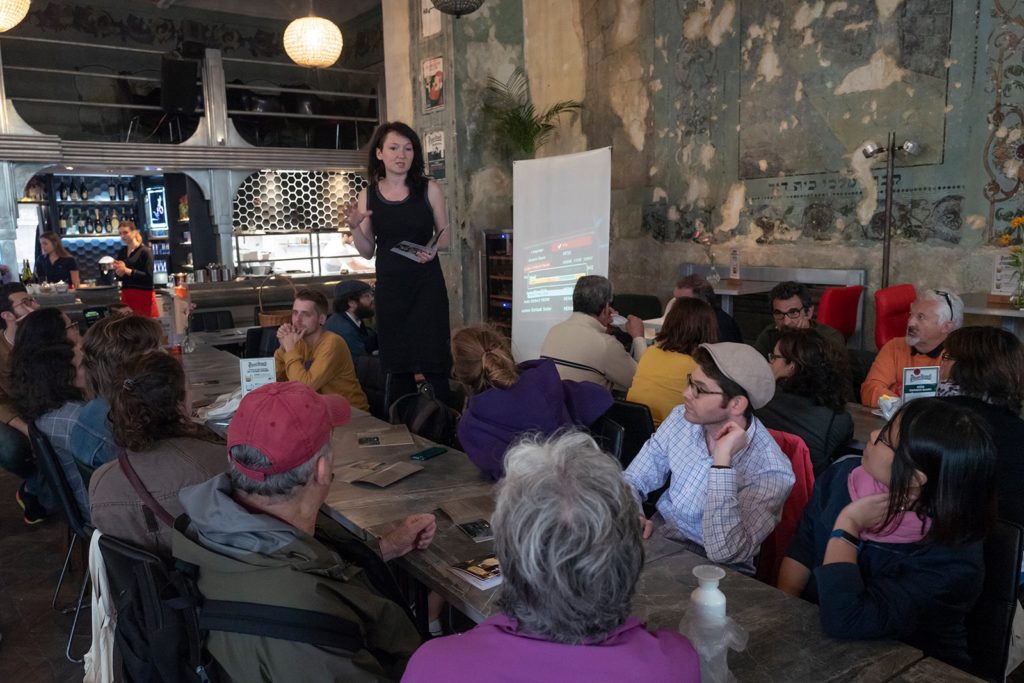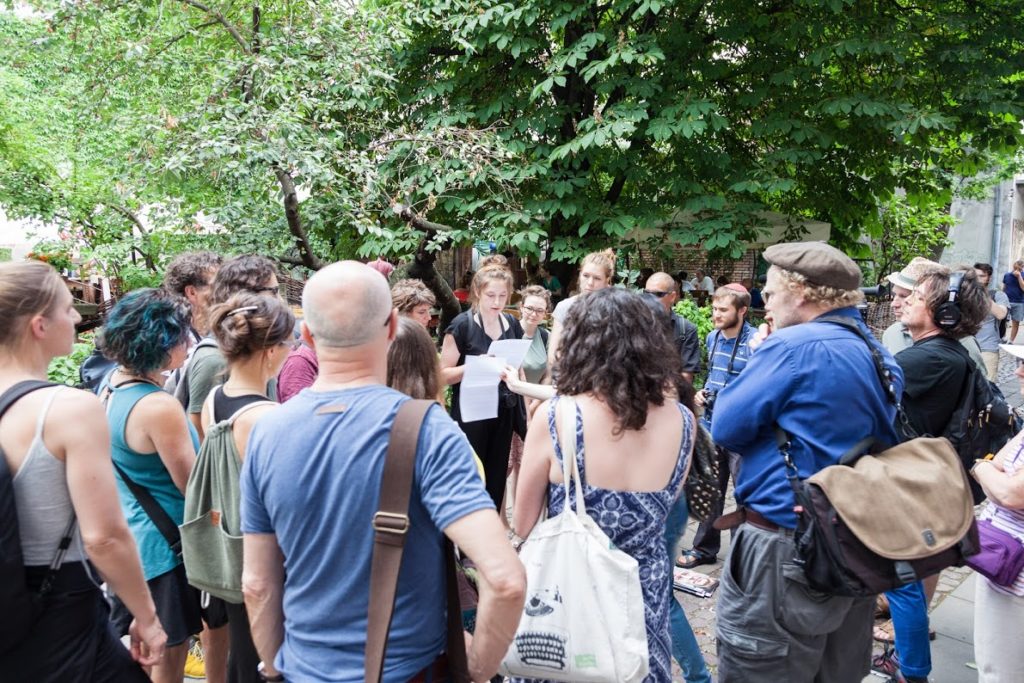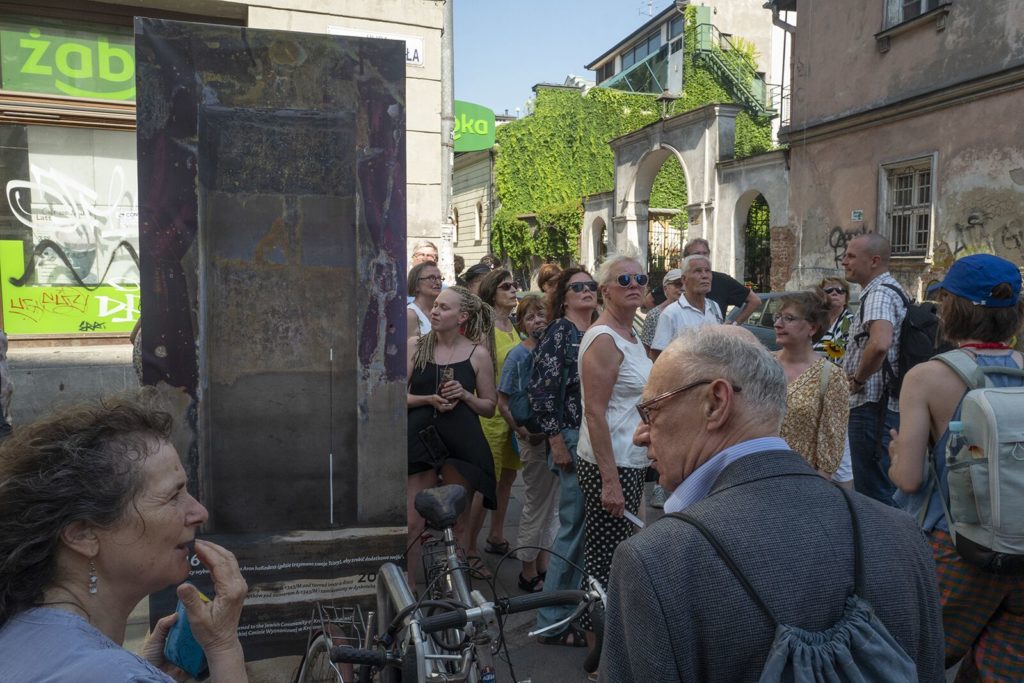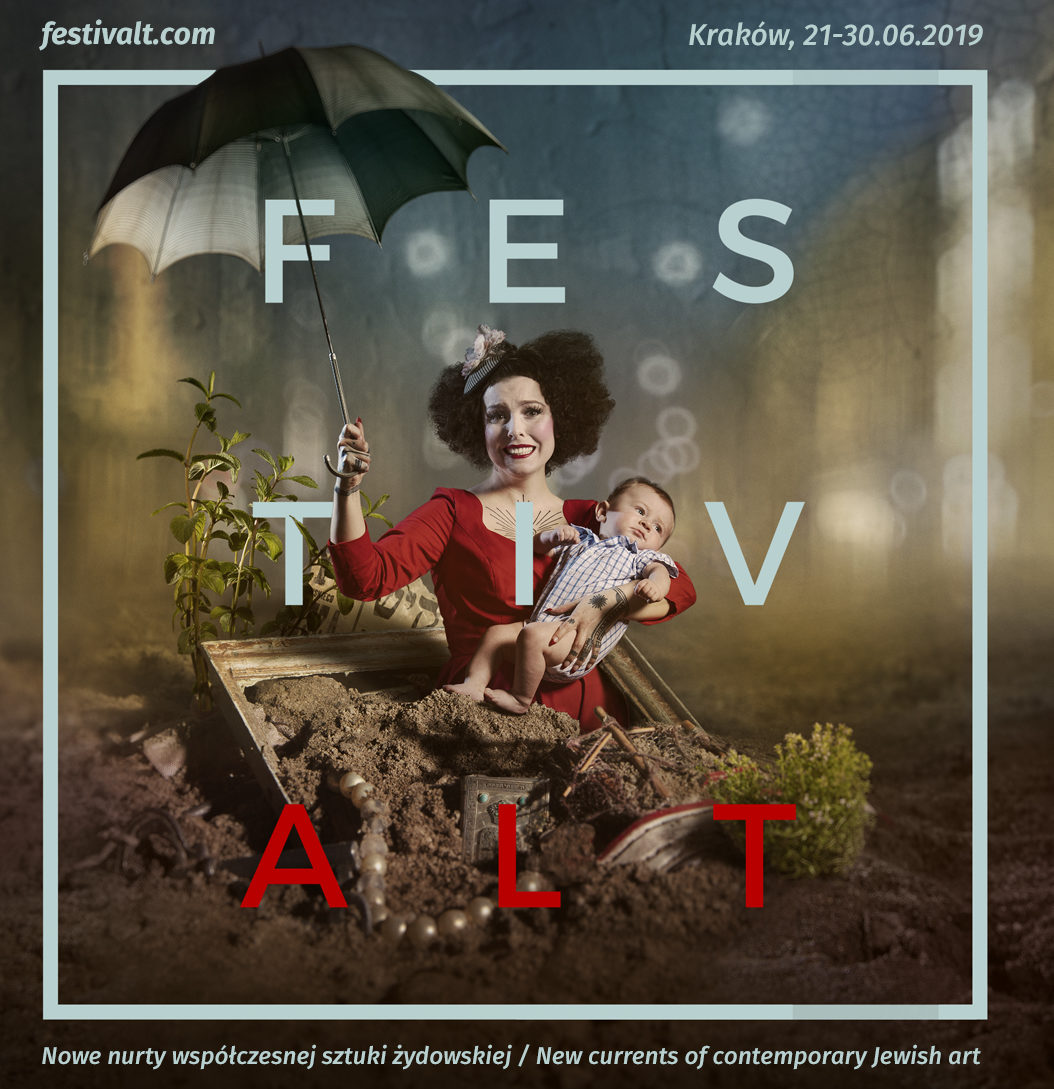The building at Meiselsa 18, designed by the prolific Polish-Jewish architect Nachman Kopald, was opened in 1896 as the prayer house and yeshivah for the Chevra Tehilim Congregation (The Society of Psalms). During the Holocaust, the Germans devastated the building’s interior. After the war and until 2006, the building housed the “Krakowiacy” singing and dancing group.
In 2001, under the 1997 “restitution of Jewish property law“ , the synagogue was returned to the official Jewish Community of Kraków. In 2008 magnificent polichromes were uncovered on the interior walls, becoming the most important collection of surviving Jewish religious wall paintings in Kazimierz. In 2012, Beit Krakow, a Krakow based progressive Jewish community, tried unsuccessfully to obtain the building as a space for spiritual and artistic practice, education, and theatre.
Instead, the Jewish Community of Kraków leased the building to the Mezcal disco, who installed shelving against the wall paintings, and speakers in the site of the Aron Hakodesh (the Ark of the Torah). The condition of the frescoes deteriorated signifcantly. Meanwhile, in 2013, the building was officially registered with the city’s heritage department.
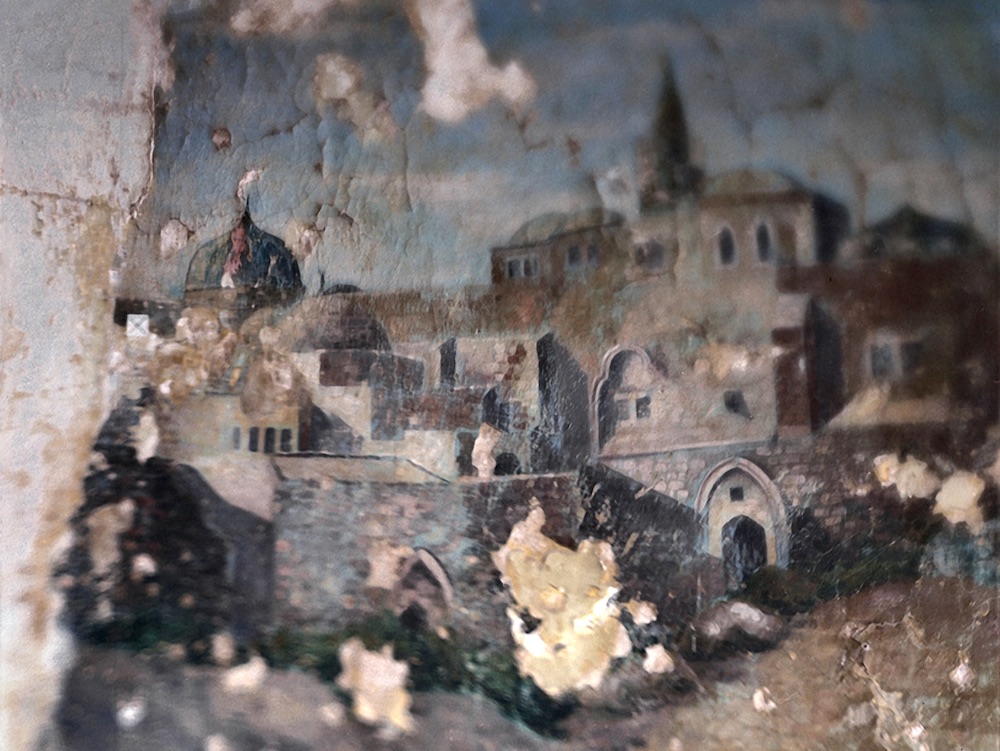
In 2016, the Jewish Community of Kraków agreed to let the owners of Alchemia Bar & Restaurant open a bar/restaurant called “Hevre” in the space, where people are invited to enjoy drinks and food in atmospheric Jewish ruins. The creation of Hevre involved the deliberate destruction of the former site of the Aron Hakodesh to create a new door onto Bożego Ciała Street, including the loss of important historical ornamentation. It is unclear how and why the city’s heritage department gave permission for this to happen.
In response, between 2017-2019 FestivALT has staged three protests/interventions at the sight of building, drawing attention to the owner’s desecration of one of the most significant pre-war Jewish buildings, and one of the worst examples of the ongoing exploitation of the neighborhood’s Jewish heritage.
In 2017 we gathered in a nearby courtyard to start our 150 small interventions project, d
